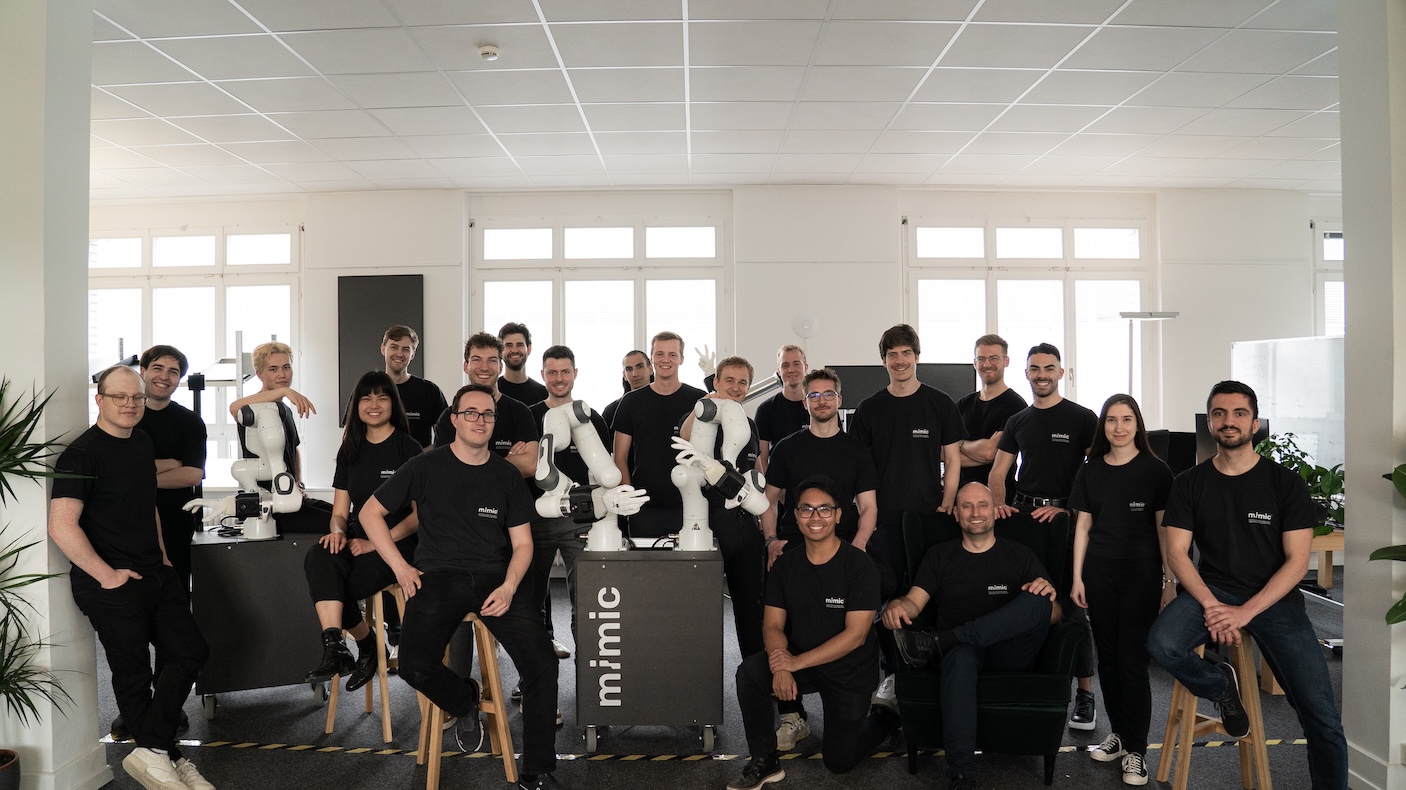From MVP to Global Leader: Scaling CoachHub with Matti Niebelschütz
In the fast-paced world of startups, growth often feels like an endless sprint.
But for Matti Niebelschütz, CEO and co-founder of CoachHub, the key to long-term success wasn’t just about accelerating as quickly as possible. It was about strategic focus and disciplined execution in the early days, which laid the groundwork for what the company is today: a global leader in coaching technology.
Founded in 2018 by Matti and his brother Yannis Niebelschütz, CoachHub has emerged as a global leader in talent development and coaching, offering 3,500 certified business coaches in 90 countries, speaking more than 80 languages. With more than 1,000 enterprise customers and with $330 million raised to date, CoachHub’s journey provides valuable lessons for early-stage founders.
In a recent conversation, Matti shared insights on; how focused execution in the early stages can lay a solid foundation for growth, how to stay adaptable, and the resilience required to navigate the many challenges that startups inevitably face.
The Importance of Focus in the Early Stages
When Matti and Yannis first co-founded CoachHub, they were working from a living room with nothing but a big idea. With limited resources, they needed to be strategic about what to prioritize. For Matti, this meant narrowing their focus to just two key objectives: building a minimum viable product (MVP) and securing their first customers.
"Early on, we had no more than a big idea and a small team. But rather than trying to do everything at once, we honed in on just two key goals: building our MVP and signing our first 10 customers," Matti explained. "We knew we couldn’t waste time on anything else. We didn’t have the luxury of perfecting everything. It was about getting something into the market quickly and learning from real users."
For CoachHub, this focus meant building the MVP using a simple content management tool. An unconventional choice, but one that allowed them to test their assumptions quickly and gather crucial feedback. It wasn’t about making a perfect product; it was about getting something into the market that could evolve based on real-world testing.
In those early days, they understood that trying to do too much too soon could lead to wasted effort. Instead, they focused on what mattered most, knowing that progress and learning would come from taking action, even if that action wasn’t perfect.
Cut to 2025, and Matti their team’s prioritization on the foundations of building a company to last has led to them launching an industry-changing AI coach, AIMY™.
CoachHub, in partnership with Microsoft, have created a product built on their deep expertise in coaching, behavioral science, AI, to enable organizations worldwide to enhance employee performance, engagement, and professional development using transformative AI functionality.

Adapting to Change: Agility as a Core Strength
While focus was essential, Matti emphasized that adaptability is just as important in the startup journey. The growth path is rarely a straight line, and sometimes the best opportunities are the ones you didn’t initially foresee.
“We had a bold vision to democratize coaching, but we didn’t know exactly how that would look,” Matti explains. “We started by targeting managers and leaders – a more specific and immediate opportunity in the market. It was a shift, but it was necessary. If we had stayed rigid in our approach, we might have missed the chance to build momentum.”
Matti’s point here is clear: the ability to pivot when necessary is key to staying relevant. Although CoachHub’s long-term vision remained unchanged, their approach to achieving it had to evolve based on new information and shifting market dynamics. As they gathered feedback from customers and the market, they realized that narrowing their focus on leadership roles was a way to quickly build a foundation that would allow them to scale.
Startups often face a choice between staying true to the original plan or adapting to changing circumstances. For Matti and CoachHub, the willingness to adjust the approach based on market realities has been a major factor in their success.
Similarly, as companies grow and change, so too do the roles founders play. From a small room with a handful of people, where founders leading sales calls with early customers to becoming more of a company representative at tech conferences, founders need to adapt over time.
The ability to step back and assess your position within your business, no matter how tightly bound you are to it, is a key evolution of successful companies.
Failing Fast, Learning Faster
In the early stages, progress often comes through trial and error. Matti believes that one of the keys to accelerating a startup’s growth is the willingness to embrace failure—not as something to avoid, but as an opportunity to learn and improve.
“We didn’t have a perfect product in the beginning, and that was okay. We built the MVP quickly, even though it was far from finished. The idea was to get something into the market and see how people reacted. We knew we wouldn’t get it right the first time, but we didn’t want to wait months or years before learning what our customers really needed.”
Rather than waiting until everything was perfect, CoachHub pushed forward with an MVP that was good enough to gather user feedback. This approach allowed them to get real-world data on what worked and what didn’t—and make quick, informed decisions based on that feedback.
Matti’s advice for startup founders? Fail fast, but learn faster. The earlier you can test and fail, the sooner you can adapt and improve. For CoachHub, this was a way to accelerate their learning and iterate on the product much more quickly than if they had waited for a “perfect” solution.
Resilience: Navigating Market Shifts
As Berlin-based CoachHub grew, the company encountered a major shift in the broader market landscape. What had once been a time of unrelenting growth soon transitioned into a period where profitability and sustainable growth became the focus following the excesses of Covid-19.
“In 2022, the market landscape changed dramatically. It was no longer about chasing growth at all costs. Our focus quickly shifted to profitability and sustainable growth,” Matti said. “We had to adapt to this new reality and shift our strategy accordingly. It wasn’t easy, but it was essential for long-term success.”
For CoachHub, which raised $200 million in funding that year, this meant adjusting its business model, optimizing unit economics, and making sure that growth was not just fast but also sustainable. While the company had initially focused on rapid expansion, the shift to profitability required a new approach that balanced growth with financial sustainability.
Startups often face market shifts, whether due to external factors like economic downturns or internal changes. Resilience in these moments is essential—not only to bounce back but to adapt your strategy to the new reality. Matti stressed that it’s critical to remain flexible in the face of change, reassessing your approach when necessary to keep moving forward.
Purpose and Profit: Balancing the Two
One of the most difficult challenges for any fast-growing startup is maintaining a balance between growth and the company’s mission. For Matti, CoachHub’s mission to democratize coaching was always at the heart of the company’s efforts—but there were times when scaling quickly seemed to require sacrifices in that regard.
“Sometimes it feels like you have to choose between making a profit and staying true to your mission. But we realized that you don’t have to sacrifice one for the other. It’s possible to grow a successful business and have a positive impact at the same time,” Matti shared.
The key to this balance, according to Matti, is keeping the company’s “why” at the center of every decision. By ensuring that their core mission was always at the forefront, CoachHub could scale responsibly while staying true to the purpose that originally drove the company.
For founders, this insight highlights an important truth: purpose-driven growth is not only possible but essential. Staying grounded in the company’s values helps maintain direction and ensures that growth doesn’t come at the cost of what matters most.
Building a Strong Foundation for the Future
For Matti and CoachHub, the early days weren’t just about surviving; they were about laying the foundation for scalable and sustainable growth. The company’s ability to focus on the right priorities, remain adaptable, learn from early failures, and balance growth with purpose enabled it to thrive in an ever-changing startup ecosystem.
For other founders just starting out, Matti’s experience offers a clear message: stay focused on the essentials, be prepared to adjust, and don’t be afraid to fail and learn quickly. By building a strong, resilient foundation in the early stages, you’ll be better positioned to scale your startup and navigate the challenges ahead.













.svg)
